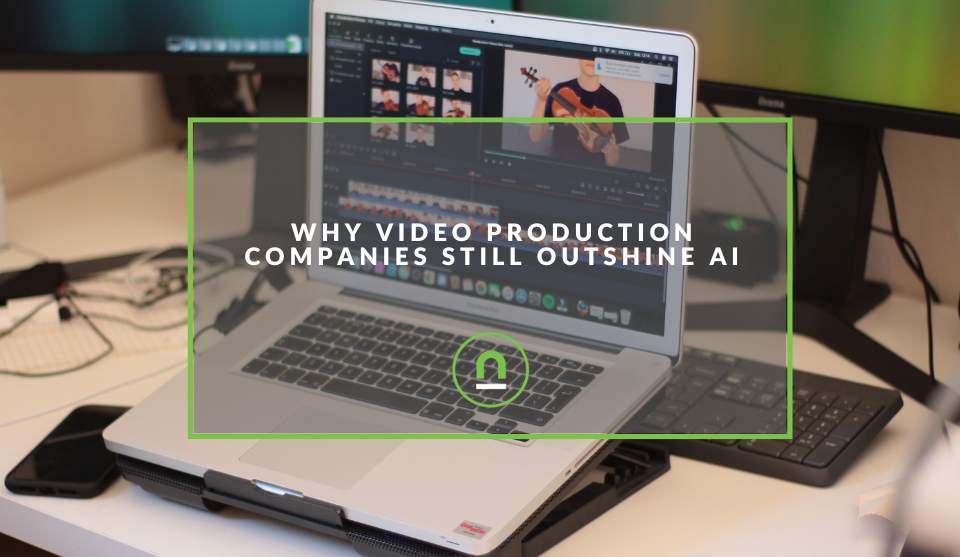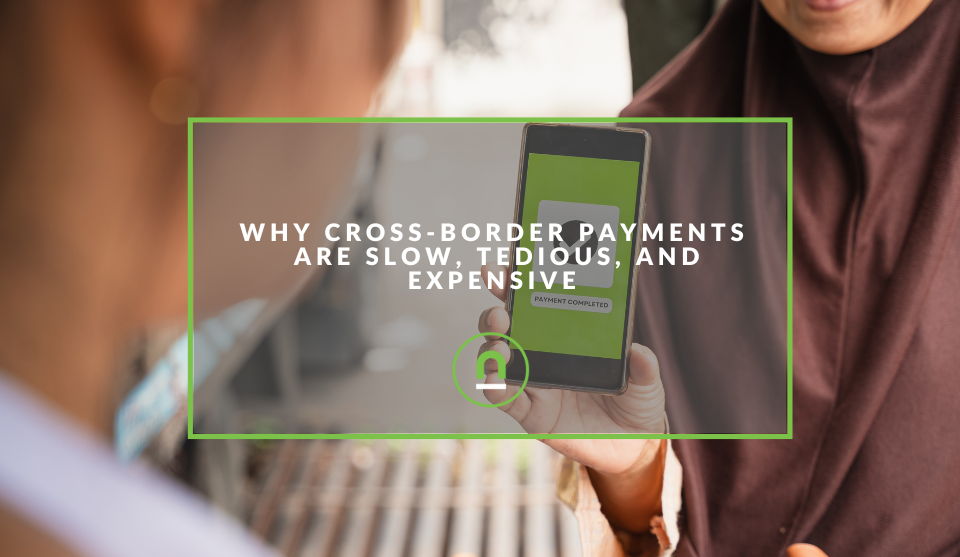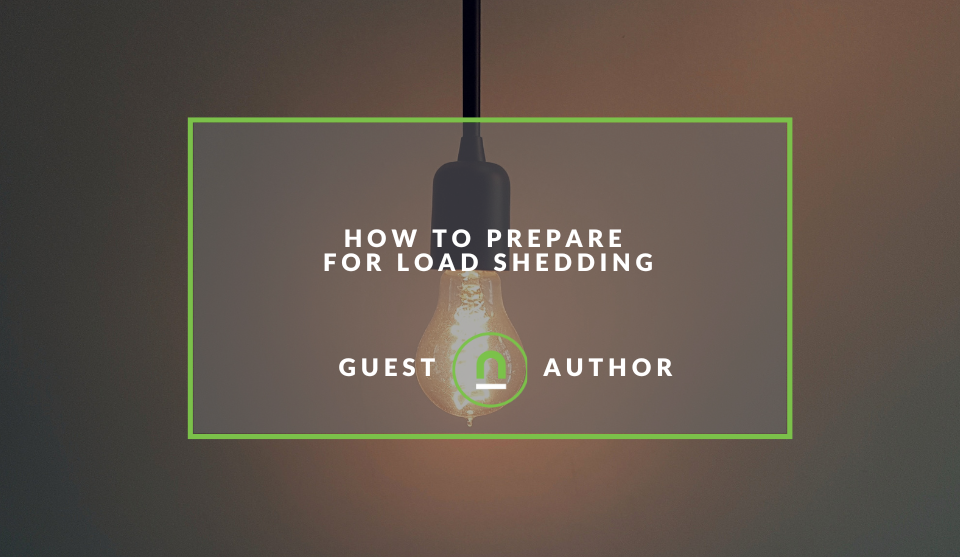Recent posts

nichemarket Advice
Why Video Production Companies Still Outshine AI
24 December 2025

Press Releases
Where You Can Find International Remote Jobs For South Africans
23 December 2025

Money Talks
Why Cross-Border Payments Are Slow, Tedious, and Expensive
17 December 2025

Money Talks
The Rise Of Trading Platforms In South Africa
16 December 2025
Popular posts
Extravaganza
Trending Music Hashtags To Get Your Posts Noticed
24 August 2018
Geek Chic
How To Fix iPhone/iPad Only Charging In Certain Positions
05 July 2020
Extravaganza
Trending Wedding Hashtags To Get Your Posts Noticed
18 September 2018
Money Talks
How To Find Coupons & Vouchers Online In South Africa
28 March 2019
How To Prepare For Load Shedding
25 June 2023 | 0 comments | Posted by Petronella Mphahlele in Constructive Criticism
Load shedding is more than a trending hashtag on South African social media feeds; it's a stark reality for every citizen; whether you're on or off the grid, you are still exposed in some way to the pains of unreliable electricity supply. Keeping the lights on is a struggle for South African consumers, businesses and, of course, the various plants that make up our national grid.
Economic impact
Load shedding is having a significant negative impact on the South African economy. It is estimated that load shedding is costing the economy billions of rands each year in lost productivity, business interruption, and damage to equipment. The uncertainty caused by load shedding is also making it difficult for businesses to plan for the future, which is further suppressing economic growth.
Consumer impact
Load shedding is also having a significant negative impact on consumers. It is causing inconvenience, disruption, and financial hardship for many people. Some consumers are having to spend more money on alternative sources of power, such as generators or solar panels. Others have to adjust their lifestyles to accommodate the unpredictable load shedding schedule.
Other impacts
Load shedding is also having a number of other negative impacts on South Africa, including:
- Damage to the environment: Load shedding is increasing the use of polluting fuels, such as diesel generators. This is contributing to air pollution and climate change.
- Health impacts: Load shedding is also having a negative impact on public health. It is causing people to spend more time in poorly ventilated spaces, which can increase the risk of respiratory infections.
- Social impacts: Load shedding is also causing social unrest. In some cases, it has led to protests and looting. The aftereffects of load shedding are significant and far-reaching. It is important to address the root causes of load shedding in order to mitigate these negative impacts.
What is load shedding?
Load shedding is a term used to describe the intentional and temporary shutdown of the electricity supply in a particular area. This is done in order to balance the demand and supply of electricity in the entire network. Load shedding is often necessary when there is not enough electricity available to meet the demand, which can cause blackouts or power outages.
The practice of load shedding is common in many countries, particularly those with inadequate or ageing electrical infrastructure. It can be inconvenient for people who rely on electricity for their daily activities. And Why do we have load shedding this long?
Why do we "need" load shedding?
Load shedding is a deliberate and temporary power outage that occurs when the demand for electricity exceeds the supply. Load Shedding is a measure to prevent more widespread and prolonged power outages. This happens when there is not enough electricity generated to meet the needs of all consumers. It is caused by a variety of factors, such as power plant failures, maintenance, or insufficient fuel supply. In some cases, load shedding is necessary to protect the power grid from a complete shutdown.
While load shedding can be frustrating for consumers, it is an important measure to prevent widespread blackouts and ensure the stability of the power grid.
Some of the root causes of load shedding include:
Underinvestment in the power grid
Eskom, the South African power utility, has not invested enough in the power grid in recent years. This has led to a decline in the reliability of the grid and an increase in the frequency of load shedding.
Inefficient operations
Eskom's operations are also inefficient. This is due to factors such as corruption, mismanagement, and a lack of skilled workers.
Demand-supply imbalance
The demand for electricity in South Africa is growing faster than the supply. This is due to factors such as population growth and economic development.
The government and Eskom need to take urgent action to address the root causes of load shedding. This includes investing in the power grid, improving operational efficiency, and reducing demand for electricity.
How to reduce the effects of load shedding
The obvious first step is to reduce your need to use electricity, looking at the tasks you need to cover and the energy demands required. For example, if cooking is a major issue for you, you might want to switch from an electric to a gas stove or have a hybrid that supports both electricity and gas.
If daily tasks are becoming a strain, you'll have to look into how you can either store energy when you need it or generate your own energy, as well as how much energy you would need as additional or spare capacity.
Portable power stations
A portable power station is a big brother to the UPS's many have been using to keep their WiFi, lights or Laptop on, these robust devices can power a host of electronics and suppliers, and depending on the size, it can operate for 1 - 4 hours without much of an issue.
Whether you need a portable power station for camping trips or a backup power source for your home, manufacturers like BLUETTI have got you covered. Shop now and get ready for a cosy and comfortable winter without breaking the bank by offering eco-friendly energy storage solutions for both indoor and outdoor use.
Home battery packs
If the mobile power station lacks the juice you need to keep all your electronics and appliances on and you need more capacity, your next step up in the range will be the home battery pack system. These modular, expandable BLUETTI power packs are stacked with an astonishing 2048Wh ultra-durable LFP cells and a 2,200W full power pure sine wave inverter; the AC200MAX can be your mobile recharge centre off-the-grid or on the way.
Depending on your needs, you can settle for one or combine them with additional battery expansion to give you all the power you need, especially during those long four-hour sessions of load shedding.
Adding solar to your energy mix
Having spare capacity is one element of the equation, but you also need to consider where you are drawing that energy from. Do you only pull from your grid when the power is running to charge up your setup, or do you augment it with additional energy generation capacity?
It's no secret that South Africa is blessed with a lot of sun; we're one of the countries that have sun nearly all year round, and with that comes an untapped resource.
By adding BLUETTI solar panels to your set-up, you can start to capture some of that sunshine and funnel it back into either your power station or battery pack, so you need not rely only on the grid for your energy.
If you remain at the mercy of the schedule
If you don't have the capital available right now to try and reduce the effects of load shedding on your life, you'll have to resort to better planning and living life by the account of the latest load shedding schedule.
Download a load shedding app
There are a number of apps available that will provide you with real-time updates on the load shedding schedule. This can help you to plan your day and avoid being caught off guard by a power outage.
Be flexible
The load shedding schedule can change at any time, so it is important to be flexible and adaptable. You'll have to try and prepare your electricity use, such as laundry, cooking and other tasks or avoid being at home during your load shedding sessions.
Either try to spend time out running your errands, working at a co-working space, spending some extra time at the office, hitting the gym, or visiting friends and family.
As we all know, load shedding schedules can change on a dime, so If you have to make changes to your plans, try to stay calm and positive.
Living with load shedding
Load shedding can be a nuisance, but it is important to remember that it is a necessary measure to protect the electrical grid. It's an unfortunate reality for South Africans, and we all have to deal with it as best we can by limiting our reliance on the national energy supplier. By following these tips, you can minimize the impact of load shedding on your life and live life in a relative state of normalcy.
Tell us your story
Would you like to write for nichemarket just like Petronella has? Find out how to submit a guest post, and when you're ready, you can contact us.
Contact us
If you would like us to help set up your marketing or want to know more about digital marketing for your business, then don’t be shy we’re happy to assist. Simply contact us
Are you looking to promote your business?
South African Business owners can create your free business listing on nichemarket. The more information you provide about your business, the easier it will be for your customers to find you online. Registering with nichemarket is easy; all you will need to do is head over to our sign up form and follow the instructions.
If you require a more detailed guide on how to create your profile or your listing, then we highly recommend you check out the following articles.
Recommended reading
If you enjoyed this post and have a little extra time to dive deeper down the rabbit hole, why not check out the following posts on small business
- How To Register A Small Business In South Africa
- How To Promote My Business For Free In South Africa
- Small Businesses That Can Go Digital During The Lockdown
- 14 Ways To Leverage Facebook As A Small Business
- How South Africans Can Kickstart Their Side Hustle
- How To Find A Suitable Buyer For My Business
- Create A Free Website For Your South African Business
You might also like
The Difference Between SOAP Notes and DAP Notes
02 December 2025
Posted by Che Kohler in Doctors Orders
A look at SOAP format, which remains the classic choice for healthcare professionals, while DAP notes offer more flexibility for mental health docume...
Read moreWhy Cross-Border Payments Are Slow, Tedious, and Expensive
17 December 2025
Posted by Che Kohler in Money Talks
While we have modernised many industries, surprisingly, digital payments are struggling to keep up, and the old way of transferring funds online has ...
Read more{{comment.sUserName}}
{{comment.iDayLastEdit}} day ago
{{comment.iDayLastEdit}} days ago
 {{blogcategory.sCategoryName}}
{{blogcategory.sCategoryName}}

